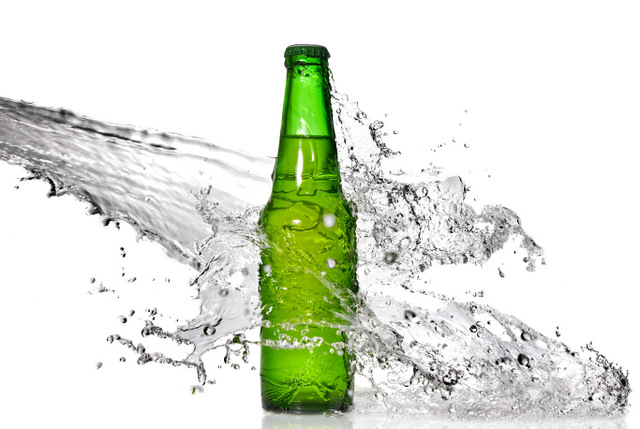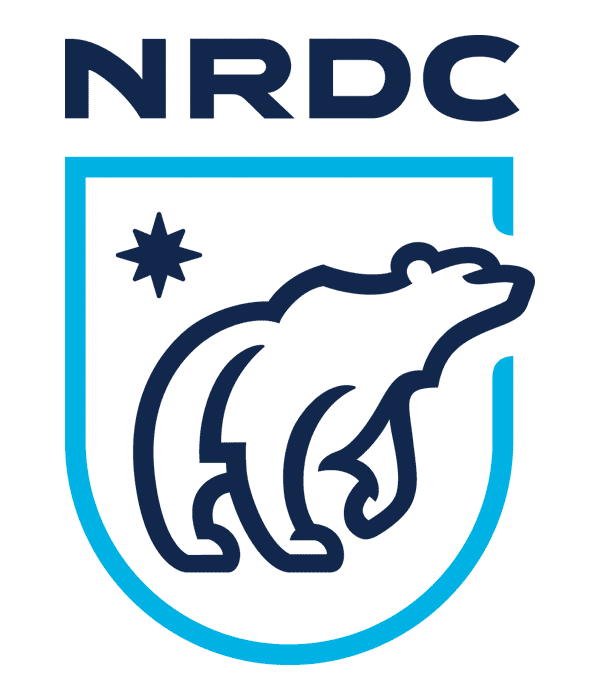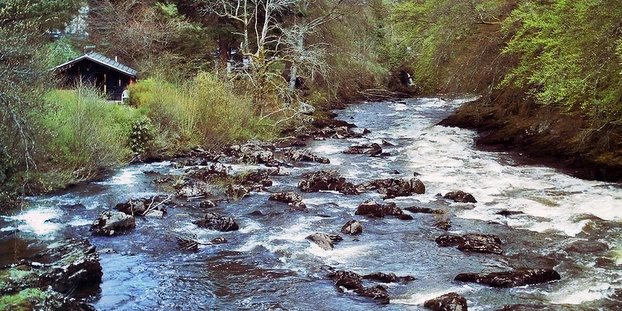 I am from Cleveland. The place where the Clean Water Act was basically born in flames. The infamous Cuyahoga river fire of 1969 is still a singed eyebrow that the city endures. The Cuyahoga River was once one of the most polluted waterways in the United States (it caught fire multiple times), but today the river is a beautiful compromise between humanity and the preserved nature of the Cuyahoga Valley National Park. This is thanks in large part to the Clean Water Act. The 1969 Cuyahoga river fire specifically pushed Congress to create the Environmental Protection Agency a year later, and one of its first major initiatives was to create the Clean Water Act (or Federal Water Pollution Control Act), which is still one of the most important pieces of eco-legislation in America.
I am from Cleveland. The place where the Clean Water Act was basically born in flames. The infamous Cuyahoga river fire of 1969 is still a singed eyebrow that the city endures. The Cuyahoga River was once one of the most polluted waterways in the United States (it caught fire multiple times), but today the river is a beautiful compromise between humanity and the preserved nature of the Cuyahoga Valley National Park. This is thanks in large part to the Clean Water Act. The 1969 Cuyahoga river fire specifically pushed Congress to create the Environmental Protection Agency a year later, and one of its first major initiatives was to create the Clean Water Act (or Federal Water Pollution Control Act), which is still one of the most important pieces of eco-legislation in America.
Water sources all over America — like the Cuyahoga River and Lake Erie — feed the craft brewing industry. The cleanliness of this water feeds our communities, our families, our businesses and (yes) helps create our beloved beer. But let’s not kid ourselves, the Cuyahoga River is certainly not pollution free, and even the Clean Water Act created to protect such waterways is getting gutted.
The always environment-last Trump administration has already poured gasoline on some very important new additions to the Clean Water Act. It’s called the Dirty Water Rule, and that name rightly reeks of pollution. In 2017, the Trump administration announced it had plans to rescind or revise an Obama era regulation under a provision of the Clean Water Act called the Clean Water Rule, which guarantees federal protections to more than half our nation’s streams and millions of acres of wetlands. After a Supreme Court ruling in January of last year, the Trump administration formally suspended the rule until Feb. 6, 2020, while it reviewed writing new rules that were, let me sum it up for you: way more lax/completely unacceptable.
Ok, the Clean Water Rule has always been contentious and litigious. Thirteen states sued to block the rule before it took effect in 2015. I get that government regulation of almost any kind can be seen as a burden on economic growth or an infringement of property or personal rights, but the long-term preservation and purity of our water sources is way more important than those short-term gripes. And really the unfair factor here is that enforcement is random.
“Not all waterways are protected by the federal Clean Water Act,” explained Becky Hammer, senior attorney and deputy director of federal water policy at Natural Resources Defense Council (NRDC), an international nonprofit environmental organization with more than three million members. “The question of exactly which ones are covered by the law has been up in the air for many years. It’s an important question because it determines which waterways are protected from pollution and destruction, and which are left vulnerable with no safeguards to keep them clean and healthy.
“In 2015, the Obama administration adopted a rule called the Clean Water Rule in order to answer this question. The Clean Water Rule established guaranteed protections for small streams and wetlands that feed into the drinking water sources of more than 117 million Americans. However, the Trump administration — with the support of industrial polluters — is now trying to undo the Rule and shrink the scope of the law’s protections. The administration has proposed a new rule — the Dirty Water Rule — redefining the coverage of the Clean Water Act in a way that excludes many waterways from protection, including approximately half of the country’s remaining wetlands and a significant percentage of its streams.
If finalized, this proposal would be the most severe weakening of clean water protections since the Clean Water Act passed in 1972. It’s a fact that the NRDC has been trying to educate the average citizen and specifically the average beer drinker to help wake up America to the fact that we’re continuing to royally F our ecosystem.
 In the campaign’s latest action, 59 breweries signed a letter to the EPA and U.S. Army Corps of Engineers opposing the agencies’ Dirty Water Rule proposal to slash clean water protections for waterways around the country.
In the campaign’s latest action, 59 breweries signed a letter to the EPA and U.S. Army Corps of Engineers opposing the agencies’ Dirty Water Rule proposal to slash clean water protections for waterways around the country.
“Established in 2013, NRDC’s Brewers for Clean Water campaign helps member breweries advocate to protect their water sources from upstream pollution — and keep waterways clean for downstream neighbors,” said Hammer. Through the campaign, brewers speak directly to lawmakers, the media and their customers about the importance of clean water for good beer. The Brewers for Clean Water campaign is actively engaged in the fight to protect clean water safeguards nationwide, including the Clean Water Rule.
“The Brewers for Clean Water urged the EPA to adopt this important rule, and they were instrumental in persuading the agency to implement it. Now, they’re fighting the current administration’s efforts to repeal it. Any craft breweries that want to help with this effort are welcome and encouraged to join the campaign.”
Join the Brewers for Clean Water campaign!
Here’s the list of breweries that signed the NRDC petition (cheers to them):
- Allagash Brewing Company (Maine)
- Alliance Brewing Company (Tennessee)
- Andersonville Brewing (Illinois)
- Asheville Brewing Company (North Carolina)
- Avery Brewing Company (Colorado)
- Bang Brewing (Minnesota)
- Blue Point Brewing Company (New York)
- Brewery Techne (Pennsylvania)
- Brewery Vivant (Michigan)
- Brooklyn Brewery (New York)
- Bull City Burger and Brewery (North Carolina)
- Clinch River Brewing (Tennessee)
- Corridor Brewery & Provisions (Illinois)
- Cypress and Grove Brewing Company (Florida)
- DryHop Brewers (Illinois)
- Earth Bread + Brewery (Pennsylvania)
- Engrained Brewery & Restaurant (Illinois)
- Fiddlin’ Fish Brewing Company (North Carolina)
- Flossmoor Station Brewing Company (Illinois)
- Forest City Brewery (Ohio)
- Founders Brewing Company (Michigan)
- Fremont Brewing (Washington)
- Grand Rapids Brewing Company (Michigan)
- Great Lakes Brewing Company (Ohio)
- Greenstar Organic Brewing (Illinois)
- Half Acre Beer (Illinois)
- Half Moon Bay Brewing Company (California)
- HopCat (Michigan)
- Horse & Dragon Brewing Company (Colorado)
- Lakefront Brewery (Wisconsin)
- Land-Grant Brewing Company (Ohio)
- Lost Rhino Brewing Company (Virginia)
- Maine Beer Company (Maine)
- Maui Brewing Company (Hawaii)
- Naked River Brewing Company (Tennessee)
- New Belgium Brewing (Colorado)
- Odell Brewing Company (Colorado)
- Old Bust Head Brewing Company (Virginia)
- One World Brewing (North Carolina)
- Revolution Brewing (Illinois)
- Right Brain Brewery (Michigan)
- Rising Tide Brewing Company (Maine)
- Rolling Meadows Farm Brewery (Illinois)
- Sailfish Brewing Company (Florida)
- Saltwater Brewery (Florida)
- Sanctuary Brewing Company (North Carolina)
- Sierra Nevada Brewing Co. (California)
- Sleepy Dog Brewery (Arizona)
- Smartmouth Brewing Company (Virginia)
- Starr Hill Brewery (Virginia)
- SweetWater Brewing Company (Georgia)
- Temperance Beer Co. (Illinois)
- Two Brothers Brewing Company (Illinois)
- Upslope Brewing Company (Colorado)
- Wild Onion Brewery (Illinois)
- Wild Wolf Brewing Company (Virginia)
- Wolf Hills Brewing Company (Virginia)
- Wrightsville Beach Brewery (North Carolina)





Leave a Reply
You must be logged in to post a comment.